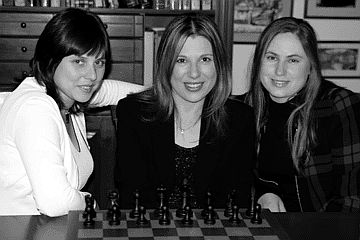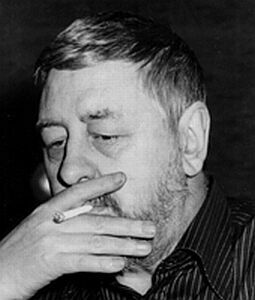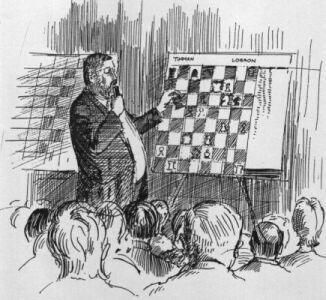| External Websites: UCS De Rode Loper - Schaakpagina |
Jos' Chess Page
^top Introduction
Hi! I'm Jos Heesen and playing with chess pieces and computers are my favourite pastimes. I'll try to combine the two while maintaining these pages.
Where can you find me?
- As a chess-webmaster: of schaak.startpagina.nl, a famous Dutch 'starting page' with lots of chess related links.
- Playing chess over the board: at my club De Rode Loper (The Red Bishop) located in Utrecht (NL).
- Playing on-line/e-mail chess: as Paardc3, at Chess.com.
^top Female chess players
Women, for whatever reasons, have not truly attained an equal footing with the male chessplayers. Madame Chaude de Silans, one of the better female players (in 1950 she was the first woman to play in an Olympic Chess Team (for France)), had this contemptuous remark on why her own sex didn't do better: "Women can't play chess because you have to keep quiet for five hours." On the other hand Milunka Lazarevich, a top Yugoslav female player, notes: "No one asks me why I play better than 19 million Yugoslavs, but only why I play weaker than some 100 (male) Yugoslavs." Indeed, the question has been raised many times: "Why can"t women play chess on the same level as men?". I"ve seen several answers. The best and funniest ones (in my opinion) were given by the late Jan Hein Donner (more about him elsewhere on this site!).
In 1968 he noted: ""However painful it may be, we must not shrink from the truth: women cannot play chess. And, if you ask me, they will never learn to play chess. ... And why can"t they play chess? After more than twenty-two years of pure scientific research, I think I have found an explanation. It is a well-known fact that a woman is superior to a man. Physically she is stronger. With her endless patience she will win, in the end, the everlasting battle of the sexes. She can think more logically... She has a far better memory... In everything a woman is superior to a man, but she misses one thing: intuition."
And: "I have studied Fraulein Jorger closely and attentively. In any aeroplane whatsoever, I would completely put myself in her hands, her piano playing is a delight, but chess... forget it, she is hopeless at it, just like any other woman."
A little bit later I hear the echo of a quote by Anna Garlin Spencer: "The failure of women to produce genius of the first rank in most of the supreme forms of human effort has been used to block the way of all women of talent and ambition for intellectual achievement in a manner that would be amusingly absurd were it not so monstrously unjust and socially harmful." This is what Donner has to say about the subject, in 1972: "The difference between the sexes in chess is remarkably big, but in my opinion no bigger than in any other cultural activity. Women can not play chess, like they can not paint, nor write literature, nor compose music, nor be a philosopher. In fact, there is nothing thought or done by a woman, that is worth noticing. So chess is not to blame. But what is? First of all a woman is far more stupid than a man. And, a woman is not at all capable to amuse herself."
A little bit later after he received some "fan" mail regarding his observation, he writes: "The authoress Hanny Michaelis protested against my assertion that women cannot write, citing a number of names as evidence to the contrary. What a ghastly list it was! The nastiest hags and frumps that ever wielded a pen!"
To another woman who wrote: "Donner forgot to mention the blacks. It should have been: women and blacks can not play chess, because they are too stupid", he answered: "She misses my point: black men can play chess, black women can not."
He adjusted his views a little bit in 1973: "The feeling of horror a real chessplayer gets when looking at women playing chess, should not make us blind for reality. They are not as silly as we like to think."
And even more in 1977, after Nona Gaprindashvili won the Lone Pine tournament: "Even in the world of chess there is at least one woman who rates as a world-class player. For inveterate masculinists and for those who must write jocular pieces to earn a living, this is a serious setback, which will naturally not prevent us in the least ... from continuing our struggle unabatedly."
And now, in 2002, Judith Polgar wins from Gary Kasparov (the World's number one for many years). This was the game:
Polgar, Judit - Kasparov, Garry, Moscow 2002 Rapid
1. e4 e5 2. Nf3 Nc6 3. Bb5 Nf6 4. O-O Nxe4 5. d4 Nd6 6. Bxc6 dxc6 7. dxe5 Nf5 8. Qxd8+ Kxd8 9. Nc3 h6 10. Rd1+ Ke8 11. h3 Be7 (11... a5 12. Bf4 Be6 13. g4 Ne7 14. Nd4 Nd5 15. Nce2 Bc5 16. Nxe6 fxe6 17. c4 Nb6 18. b3 a4 19. Bd2 Kf7 20. Bc3 Rhd8 21. Rxd8 Rxd8 22. Kg2 Rd3 23. Rc1 g5 24. Rc2 axb3 25. axb3 Nd7 26. Ra2 Be7 27. Ra7 Nc5 28. f3 Nxb3 29. Rxb7 Nc1 30. Nxc1 Rxc3 31. Ne2 Rc2 32. Kf1 Rxc4 33. Rxc7 {1/2-1/2 Kasparov-Kramnik, London 2000}) 12. Ne2 Nh4 (12... Bd7 13. b3 Rd8 14. Bb2 Rg8 15. Rd2 Bc8 16. Rad1 Rxd2 17. Nxd2 g5 18. g4 Ng7 19. Ne4 Ne6 20. Bc1 Rg6 21. Be3 c5 22. N2g3 b6 23. Nh5 Ng7 24. Nhf6+ Kf8 25. Nh7+ Kg8 26. Nef6+ Kh8 27. Nf8 Bxf8 28. Rd8 Ne6 29. Rxc8 Kg7 30. Nd5 h5 31. gxh5 Rh6 32. Nf6 Rh8 33. Kg2 Kh6 34. h4 Bg7 35. hxg5+ Nxg5 36. Rxh8+ Bxh8 37. Ne4 (1-0 Lasker,E-Herz/Lewitt/Keidanski, Berlin 1896)) 13. Nxh4 Bxh4 14. Be3 Bf5 15. Nd4 Bh7 16. g4 Be7 17. Kg2 h5 18. Nf5 Bf8 19. Kf3 Bg6 20. Rd2 hxg4+ 21. hxg4 (Inferior is 21. Kxg4 Rd8) 21... Rh3+ 22. Kg2 Rh7 23. Kg3 f6 24. Bf4 Bxf5 25. gxf5 fxe5 26. Re1 Bd6 27. Bxe5 Kd7 28. c4 c5 29. Bxd6 cxd6 30. Re6 Rah8 31. Rexd6+ Kc8 32. R2d5 Rh3+ 33. Kg2 Rh2+ 34. Kf3 R2h3+ 35. Ke4 b6 36. Rc6+ Kb8 37. Rd7 Rh2 38. Ke3 Rf8 39. Rcc7 Rxf5 40. Rb7+ Kc8 41. Rdc7+ Kd8 42. Rxg7 Kc8 1-0
Alas Donner did not live to see this happen.
On the web there are several sites taking a look at "Female Chess" one way or the other:
- Goddess Chess
- Women beat Men...
- Chess and Charms
- Queen's move
- The Gender Gap (Suzan Polgar in the Chess Cafe 07-09-02)
- Gallery of x-models and chess
- Sam's Beauty Contest for FIDE Female Chess Players
- World Chess Beauty Contest
- Bill Wall's "Women and Chess"
See this link to combine playing chess with a computer and a woman...
^top Female chess champions
The text below appeared in Mark Week's About Chess
The history of female chess champions began with the formation of FIDE in 1924. Although then FIDE had had no impact on the World Chess Championship for more than 20 years, its impact on women's chess, which had been largely ignored, was immediate and profound. At its 3rd Congress, Budapest 1926, FIDE organized several events, among them a team tournament and a women's tournament. At its 4th Congress, London 1927, those events morphed into the first Olympiad and the first Women's World Championship.
The reign of Menchik
The 1927 Women's Championship was won by Vera Francevna Menchik, born 1906 in Moscow, daughter of a Czech father and an English mother. At the age of nine she learned chess and as a teenager moved with her family to London, where she took chess lessons from Geza Maroczy (Hungarian, 1870-1951), at the time one of the top-10 players in the world.
Menchik's dominance of women's chess was absolute. Except for the second Olympiad, The Hague 1928, the first seven Women's World Championships were held every two years together with an Olympiad. Menchik won all seven events, losing only one game and drawing four out of 83 games played. She also won a 1937 title match against her chief rival, Sonja Graf-Stevenson (German/American, 1914-1965).
In 1937 Menchik married Rufus Henry Streatfeild Stevenson (British, 1878-1943), a U.K. chess organizer. Stevenson's first wife Agnes, four times British Women's Champion, had died tragically in 1935, when she walked into the propellers of the airplane waiting to take her to the Warsaw tournament. Menchik also met a tragic death in June 1944. She was killed with her mother and chess-playing sister during one of the last German air attacks on London. The British Chess Magazine wrote:
"The death by enemy action of Miss Vera Menchik removes not only the greatest woman chess player of all times but a charming personality. The world will remember her for her chess prowess, for her exceptional skill as a woman player who had beaten in tournament play such gifted players as Euwe, Sultan Khan, Sir George Thomas, Alexander, and Yates. In such company, and she played in several of the Hastings International tournaments and others of similar grade, she usually obtained about 33%, though in the Maribor tournament of 1934 she finished third, behind Pirc and Steiner but ahead of Rejfir, Spielmann, Asztalos, and Vidmar. Her game was characterized by solid position-play, with the definite aim of bringing about a favourable end-game and of avoiding wild complications. The ordinary stratagems of the game, small combinations and the like, were of course part of her equipment, but she lacked that imaginative, inventive spirit without few become really great players."
The last sentence ('she lacked that imaginative, inventive spirit') was a common observation about early women's chess. Whether valid or not at the time, the prejudice that women's chess is somehow boring or uninteresting has long ceased to be true.
FIDE introduces cycles
Like most organized chess, FIDE lay dormant during the 2nd World War. After the death in 1946 of World Champion Alexander Alekhine at Estoril, Portugal, FIDE took control of all activities related to the World Chess Championship (Euwe became World Champion for a day then!). It organized events to produce a new World Champion plus a steady supply of challengers from staged competitions. Parallel to this FIDE introduced a similar system for the Women's World Championship.
The first women's event was a 16-player round robin with entrants from 12 countries, started December 1949 at Moscow. Soviet players captured the first four places. Liudmila Rudenko of Leningrad won the event (+9-1=5), one point ahead of 2nd place Olga Rubtsova of Moscow. The first Candidates Tournament for women was held at Moscow in 1952. Elizaveta Bikova won the event (+11-3=1), one point ahead of 2nd/3rd places, earning the right to face Rudenko in the first modern Women's World Championship match. Behind by one point in the last game, Rudenko needed a win to retain the title. She fought hard, but lost. Elizaveta Bikova thus beat Rudenko (+7-5=2) to become the second women's World Champion. The second Candidates Tournament, Moscow 1955, was won by Rubtsova (+13-2=4), one-half point ahead of 2nd place. FIDE decided that the World Championship would be a triangular match of the three strongest players in the world. Olga Rubtsova won at Moscow in 1956, one-half point ahead of Bikova who finished five points of Rudenko. With no intervening Candidates event, Bikova regained the title at Moscow in 1958, beating Rubtsova (+7-4=3). She accomplished the first successful defense of the title by beating Kira Zvorikina, winner of the Candidates Tournament, with a score of +6-2=5 at Moscow in 1959.
The reign of Gaprindashvili
The fourth Candidates Tournament, Vrnjacka Banja 1961, was won by Nona Gaprindashvili of Georgia (+10-0=6) two points ahead of 2nd place. Gaprindashvili crushed Bikova (+7-0=4) in the title match, Moscow 1962, to become the fourth Women's World Champion. Gaprindashvili defended her title against Alla Kushnir of Russia in matches at Riga 1965 (+7-3=3), Tbilisi/Moscow 1969 (+7-2=5), and Riga 1972 (+5-4=7). Her last successful title defense (+8-3=1) was against her compatriot Nana Alexandria of Georgia at Pitsounda/Tbilisi 1975.
For the 1970-72 cycle, FIDE introduced the same qualification sequence used in the unrestricted World Championship : an Interzonal Tournament followed by a series of Candidates Matches. The first Women's Interzonal Tournament, Ohrid 1971, was won by Alexandria ahead of Milunka Lazarevic and Tatiana Zatulovskaya. The three were joined by Kushnir in the Candidates Matches, where Kushnir beat Alexandria (+6-2=1) in the final match at Kislovodsk 1971.
The reign of Chiburdanidze
The 1976-78 cycle saw two Interzonals at Roosendaal and Tbilisi. Maia Chiburdanidze of Georgia finished second at Tbilisi behind Elena Fatalibekova, the daughter of Olga Rubtsova, third World Champion. Fatalibekova was eliminated in a semifinal Candidates match by Kushnir, but Chiburdanidze beat Alexandria (+3-2=5), Elena Akhmilovskaya (+4-3=5), and Kushnir (+4-3=7) to earn the right to challenge Gaprindashvili.
When 17-year old Maia Chiburdanidze beat Gaprindashvili (+4-2=9) at Tbilisi in 1978, the torch passed from one generation of Georgian women champions to the next. She defended her title against Alexandria at Borsomi/Tbilisi 1981 (+4-4=8), Irina Levitina at Volgograd 1984 (+5-2=6), Akhmilovskaya at Sofia 1986 (+4-1=9), and Nana Ioseliani at Telavi 1988 (+3-2=11). FIDE changed the format for the 1985-86 cycle by reintroducing a Candidates tournament, Malmo 1986, in place of the matches. The winner of the Malmo tournament, Elena Akhmilovskaya, is better known today as Mrs. John Donaldson. She eloped with the American IM during the 1988 Olympiad in Greece, where Donaldson was the team captain.
The reign of the Hungarians and the Chinese
The Georgian domination of women's international chess ended abruptly at Manila 1991, when the young Chinese star Xie Jun beat Chiburdanidze (+4-2=9). She had earned the right to be challenger by finishing second behind Gaprindashvili at the 1990 Interzonal in Kuala Lumpur, tying with Alisa Maric at the Candidates Tournament, Borzomi 1990, then beating Maric (+3-1=3) in a tiebreak match.
Xie Jun's victory set the stage for a clash with Zsuzsa (Susan) Polgar, the eldest of the famous Polgar sisters - Susan, Sofia, and Judit - of Hungary. When Judit emerged as the strongest of the three, the family decided that she would seek the unrestricted World Championship, while Susan would seek the Women's World Championship.
Zsuzsa Polgar, 23 years old, easily won the women's Candidates Tournament, Shanghai 1992, three points ahead of Ioseliani and Chiburdanidze. The FIDE rules stipulated that the top two candidates would meet in a final match to decide Xie Jun's challenger. Since Ioseliani had the higher tiebreak, she was tapped for the match with Polgar. Few observers expected the Polgar - Ioseliani match to be more than a formality. At the start of the 8-game match, Monaco 1993, the Hungarian outrated her Georgian opponent by 100 rating points. After Polgar won the first two games and drew the next three, she needed only one point in the last three games to clinch the win. Ioseliani won the sixth game, drew the seventh, and won the eighth to take the match into a two-game tiebreak. Polgar won the first tiebreak game, but Ioseliani won the second, forcing a second two-game tiebreak. When the pattern repeated - Polgar winning then Ioselani - FIDE ruled that the match would be decided by a lottery. This time Ioseliani won, eliminating Polgar from the cycle. The title match was an anticlimax. Ioseliani's luck ran out and Xie Jun defeated her decisively (+7-1=3) at Monaco 1993.
The next cycle was all Zsuzsa Polgar's. After tying with Chiburdanidze in the Candidates Tournament, Tilburg 1994, she beat the ex-World Champion in the final match (+4-0=3), St. Petersburg 1995. She went on to beat Xie Jun (+6-2=5) at Jaen 1996, giving the Polgar family its first World Champion. The chess world did not suspect that this would be the last classic match played on the terms in effect since Bikova - Rudenko 1953.
The next Candidates Tournament, Groningen 1997, was organized concurrent with the first of the FIDE World Championship Knockout tournaments. Alisa Galliamova and Xie Jun finished 1st and 2nd, seeding them into the final match. Susan Polgar's sister Judit competed in the Knockout event, but was eliminated in the second round. Her best result in FIDE Knockout events was Las Vegas 1999, when she was eliminated in the 5th round by Alexander Khalifman, the eventual winner of the tournament and the title.
The final match in the Women's Championship was scheduled to be played in Shenyang, after sponsors from China made the best offer for the prize fund. Galliamova refused to play the entire match in China and the win was awarded by default to Xie Jun. The title match would be Polgar - Xie Jun II. By the time FIDE announced the date and venue for the title match, Polgar had given birth to her first child. She considered that the time to recover from childbirth and to prepare for the new match was insufficient. She requested that the match be postponed, FIDE refused, and negotiations broke down. After the contract deadline passed, FIDE declared that the title match would be played between Xie Jun and Galliamova. The forfeited Candidates match was to be resurrected as a title match! The 1999 match, with a venue split between Kazan and Shenyang, was won by Xie Jun (+5-3=7).
A year later, at New Delhi 2000, Xie Jun defended her title by winning the first Women's Championship played with the knockout format. She beat her compatriot Qin Kanying (+1-0=3) in the final match of the six round event.
The Chinese dominance was reconfirmed when Zhu Chen beat Alexandra Kosteniuk (+2-2=0; +1-1=0; +2-0=0) in the final match of the Moscow 2001 knockout event.
|
In this summary of female World Champions by Mark Weeks I miss Judit Polgar: the strongest female chessplayer ever. She just refuses to become a female World Champion! I make up for this with a short bio: Judit Polgar (born July 23, 1976) is a Hungarian chess player. Easily the best female chess player in history, in the April 2004 FIDE rating list (including men and women) she was ranked number nine in the world with an Elo rating of 2728. Judit and her two older sisters (Zsuzsa (GM) and Zsofia (IM)) (from right to left in the picture below) were reportedly part of a educational experiment carried out by their father in an effort to prove that women could achieve high mental aptitude when trained from a very early age. He set out to educate his daughters in many fields, not merely chess, but all three latched on to the game at a young age, and have achieved heights in chess few men ever achieve. |
Judit could almost certainly have won the title of Women's World Champion of Chess several times over. No other woman was even in the top 100 of the January 2004 FIDE rating list. However, she has refused to participate in women-only chess events, stating that she wants to be the true World Champion of Chess. Amongst her achievements are earning the men's Grandmaster title at the then-record age of 15 years and 4 months, one month earlier than Bobby Fischer's previous record. |
|
Her climb up the ranks once seemed to put her on target for the world championship, but although she has played many winning games against some of the world's best players, she has yet to win a major tournament. She has also been unable to beat former champion Garry Kasparov in any of their encounters in standard time control games. In 2002, she finally beat Kasparov in a rapid game of the "Russia vs The Rest of the World 2002" tournament.
This is what Johannes Fischer wrote in "KARL das kulturelle Schachmagazin":
"Seit ihrer Kindheit erregt Judit Polgar die Gemuter. Sie ist die jungste und erfolgreichste der drei Polgar-Schwestern und damit Teil eines paedagogischen Experiments von Vater Laszlo Polgar, der glaubt, Genie sei nicht angeboren, sondern anerzogen. Den Beweis fuer diese These versuchte er mit radikalen Methoden anzutreten: Da er der Ansicht war, die Schule wuerde Kinder nicht ausreichend fordern, erzog er seine Tochter zusammen mit seiner Frau Klara zu Hause. Spater schilderte Judit in einem Interview einen fuer sie und ihre Schwestern typischen Tag: "Wir stehen um sechs auf. Um sieben gehen wir in einen Tischtennis-Klub, wo wir zwei bis drei Stunden Tischtennis spielen. Dann gehen wir nach Hause, spielen Schach, empfangen Gaste, Journalisten. Und danach horen wir Musik, lesen ein bisschen. Normalerweise spielen wir sechs bis acht Stunden Schach am Tag." (Dirk Jan ten Geuzendam, "Interview with Judit Polgar", New in Chess , 8/1989, S.34).
Die Erfolge von Laszlos Methoden sind bekannt, aber rufen gemischte Gefuehle hervor: kann man, darf man so seine Kinder erziehen? Erinnert dieses Experiment nicht an Kinder, die mit aller Gewalt zu Turnstars gemacht wurden und spater mit fruh verbrauchten Korpern bitter fuer die fruehen Erfolge zahlen mussten? Aber zeigt dieses Experiment nicht auch, wie schlecht es um die Erziehung von Kindern in unserer Gesellschaft bestellt ist, wie viel Potenzial bei fast jedem verloren geht, eben weil er oder sie nicht richtig gefordert wird?
In der Schachwelt brachten Judit Polgars Erfolge den Glauben ins Wanken, Frauen konnten von Natur aus kein Schach spielen, denn die Ungarin schien genug Talent und Energie zu besitzen, um den Weltmeisterthorn der Maenner einnehmen zu konnen. Die Reaktionen folgten prompt. Herabsetzung, wie z.B. durch den ehemaligen Kasparow-Trainer Alexander Nikitin, der nach der 4,5:5,5 Niederlage von Boris Spasski in einem 1993 in Budapest ausgetragenen Wettkampf gegen Judit Polgar, schrieb: "Ich verstehe noch immer nicht ganz, warum Boris sich auf diese Sache eingelassen hat ... Wenn er verliert, wurden die Leute sagen: gegen ein kleines Madchen verlieren, wie tief kann man sinken?" (New in Chess , 2/93, S. 46) oder das Beschworen der Natur wie durch Garry Kasparow 1990: "Es ist unvermeidlich, dass die Natur gegen sie arbeitet, und das sehr bald. Sie besitzt phantastisches Schachtalent, aber sie ist trotz allem eine Frau. Das liegt alles an den Unvollkommenheiten der weiblichen Psyche. Keine Frau kann einen langeren Kampf durchhalten. Sie kampft gegen die Gewohnheit von Jahrhunderten und Jahrhunderten, seit Anbeginn der Welt." (Zitiert in Alex Dunne, 2010 Chess Oddities, S.78)
Viele junge Schachspielerinnen sehen in Judit Polgar ein Rollenmodell, anderen jedoch ist sie unbequem. Aber nicht, weil sie regelmassig gegen Polgar verlieren. Im Gegenteil: Judit Polgar weigert sich in schwach besetzten Frauenturnieren anzutreten und spielt nur bei den Mannern mit. Einzige Ausnahme waren die Schacholympiaden 1988 in Saloniki und 1990 in Novi Sad, wo sie mit ihren Schwestern Zsuzsa und Sofie sowie Idliko Madl beide Male Gold fuer Ungarn gewann. Judit Polgar hat nie versucht, Frauenweltmeisterin zu werden, obwohl sie als mit Abstand beste Schachspielerin der Welt damit leicht Titel und Tausende von Dollar hatte gewinnen konnen.
Judits Weigerung in Frauenturnieren zu spielen, bricht ein Tabu. Schliesslich sollte es zu denken geben, wenn die beste Frau der Welt Frauenturniere vermeidet. Vielleicht verfuhren die leichteren Frauenturniere, in denen schneller und mit viel weniger Einsatz Erfolge zu erzielen sind, talentierte Frauen, ihr Talent nicht zu entfalten? Diese Uberlegung wiederum gefahrdet die Nische Frauenschach. Sicher, eine Frau mag sich in der Mannerwelt des Schachs nicht immer wohl fuhlen, aber die Frauen, die dabei bleiben und halbwegs gut spielen, kommen in den Genuss einer Reihe von Privilegien. Denn anders als im Berufsleben erhalten sie fuer die gleiche Leistung nicht weniger, sondern mehr Geld. In der Frauenbundesliga, bei Frauenturnieren und in zahlreichen Open, bei denen Sonderpreise fur Frauen ausgelobt werden. Mehr Aufmerksamkeit bekommen sie sowieso. Elisabeth Pahtz, bei den Frauen in Deutschland die Nummer Zwei, zieht mehr mediales Interesse auf sich, als die gesamte deutsche Herrenmannschaft aus Alexander Graf, Christopher Lutz, Jan Gustafsson, Leonid Kritz und Klaus Bischoff.
Aber die Trennung in Manner- und Frauenschach ermutigt talentierte Madchen nicht nur, sich mit weniger zu begnugen, als sie erreichen konnten, sie ist auch in anderer Hinsicht problematisch. Gerne schmuckt sich das Schach damit, Eigenschaften wie Selbstdisziplin, analytisches Denken, uberlegtes Handeln usw. zu vermitteln, die im Leben, insbesondere im Berufsleben, wichtig sind. Wenn dies stimmt, was sagt das dann uber die Chancen der Frauen im Berufsleben? Ist der Umstand, dass so wenige Frauen gut Schach spielen dann nicht ein Beleg dafuer, dass Frauen im Arbeitsleben noch immer benachteiligt werden? Mit anderen Worten: Schneiden sie in Sachen berufliche Qualifikation naturgegeben schlechter ab als Manner? Die Zahlen sprechen eine andere Sprache. Erst kurzlich veroffentlichte der Spiegel eine Untersuchung, die zeigt, dass die Schulnoten und Universitatsabschlusse von Frauen im Vergleich zu denen der Manner immer besser werden und in mehr und mehr Bereichen des Lebens besetzen Frauen zunehmend wichtige Positionen – trotz immer noch herrschender Benachteiligung.
Tatsachlich geht es bei der Diskussion um das Phanomen Judit Polgar um mehr als nur Schach: Das Selbstverständnis als Mann und Frau, gesellschaftliche Rollen und scheinbare Gewissheiten, mit denen man aufgewachsen ist, stehen auf dem Spiel. Und das Schone am Phanomen Judit Polgar ist, dass es alte Denkmuster aufbricht. So wurde ihr seit Beginn ihrer Laufbahn prophezeit, ihre Schachkarriere wurde spatestens dann einen Knick bekommen, wenn sie eine Familie grundet. Jetzt, wo sie im August ihr erstes Kind bekommen hat, wird man sehen, ob das zutrifft. Vielleicht straft sie alle Pessimisten Lugen und spielt nach Babypause besser als je zuvor. Es ware ihr und der Schachwelt zu gonnen."
The Champions
Below I list the female chess worldchampions. For each champion I provide a list of links with details about her.
- 1927-1944 Vera Menchik (1906-1944) from Czechoslovakia/England. Born in Moscow of Czechoslavakian-British extraction, Vera Menchik was easily the strongest female player of her time, having at one time or other beaten most of the strongest players in the world (the defeated became members of the "Vera Menchik Club"). In 1927 she won the first Women's World Championship tournament with a score of 10.5 out of 11. She defended her title with ease in Hamburg 1930, Prague 1931, Folkestone 1933, Warsaw 1935, Stockholm 1937 and Buenos Aires 1939.
- 1944-1950 There was no champion(ship)
- 1950-1953 Liudmila Rudenko (1904-1986) from the Soviet Union. Ludmila Rudenko from Byelorussian started her career by winning the women's champion of Moscow in 1928. She went on to win the Women's World Championship tournament in 1949, with a score of 11.5 out of 15. She held the title until 1953.
- 1953-1956 Elizaveta Bykova (1913-1989) from the Soviet Union. Elizaveta Bykova was coincidentally born in a town called Bogolyubovo in Russia. In 1938 she became women's champion of Moscow, which she subsequently won a number of times. She was first the USSR Championships of 1947, 1948 and 1950. She wan the Candidates in Moscow in 1952 and had the right to challenge Ludmilla Rudenko. The match, in 1953, was a tight struggle, but Bykova won with 8:6. So she became, 40 years old, the third Ladies World Champion.
- 1956-1958 Olga Rubtsova (1909-1994) from the Soviet Union. At 17 Olga won the first USSR Women's Championship. That was in 1927. After that she won a great number of tournaments, including the USSR Women's Championships of 1931, 1937 and 1949 and the Moscow Championships of 1953 and 1954. In 1956 she defeated Elizaveta Bykova to become the fourth women's world champion.
- 1958-1962 Elizaveta Bykova (1913-1989) from the Soviet Union. In the Revanchematch against Rubtsova, in 1958, Bykova was the strongest. In 1960 Bykova was the winner in the WC Match against Kira Sworykina (8½:4½). In that same year she also won an International Tournament in Amsterdam.
- 1962-1978 Nona Gaprindashvili (1941- ) from the Soviet Union. She was born in Tbilisi, Georgia, and was the greatest female player of her generation. She won the world championship title in 1962 and defended it three times. Gaprindashvili played in men's tournaments, winning amongst others Hastings 1963/64 and and tied for first at Lone Pine 1977. In 1978 she came second and earned a full male GM title.
- 1978-1991 Maia Chiburdanidze (1961- ) from the Soviet Union. The Georgian was one of the first women chess prodigies, becoming the youngest WIM in the history of the game (in 1974 at the age of 13). Her best results were first at Brasov 1974, 1st at Tbilisi 1975 and most impressive of all, second in the 1976 Tbilisi Women's Interzonal and thus qualifying for the 1977 Candidates, wherein, she defeated Alla Kushnir in the final. In 1978, she became Women World Champion by winning a match against Nona Gaprindashvili by 8.5-6.5.
- 1991-1996 Xie Jun (1970- ) born in Beijing, China. Xie Jun was and became junior Xiangqi (Chinese chess) champion of Beijing at the age of six. She was later persuaded to take up chess. She won the World Women's Champion title a total of four times: in 1991 against Chiburdanize, 1993 against Ioseliani, 1999 against Galliamova and 2000 against Qin Kanying in the first FIDE knock-out championship. Xie Jun was directly responsible for a dramatic increase in popularity of chess in China.
- 1996-1999 Susan Polgar (1969- ) from Hungary. The oldest of the famous Polgar sisters initially refused to play in women's tournaments, becoming a male grandmaster in 1991 at the age of 23. In 1993 she decided to play for the women's world championship, but did not win the title after a 12-12 draw against Nana Ioseliani. In 1996 she became world champion after beating Xie Jun, and lost the title in 1999 when she refused to play under FIDE's new knockout rules. Susan has also won the Women’s World Chess Champion titles in rapid and blitz chess (both in 1992).
- 1999-2001 Xie Jun (1970- ) from China. (see 1991-1996)
- 2001-2004 Zhu Chen (1976- ) from China. The Chinese player Zhu Chen became Women's World Champion in the FIDE knock-out event in Moscow 2001, beating Russian Alexandra Kosteniuk in the process. In the recent world championship in Elista Zhu failed to participate due to pregnancy and attached scheduling problems.
- 2004-2006 Antoaneta Stefanova (1979- ) from Bulgaria. This top Bulgarian female player won the title in the FIDE knock-out championship (June 5th 2004) in Elista, Kalmykia, defeating Russian WGM Ekaterina Kovalevskaya in the final.
- 2006-2008 Xu Yuhua (1976- ) a WGM from China. She won the title in the FIDE knock-out championship (March 25th 2006) in Ekaterinburg, Russia, defeating Russian IM Alisa Galimova in the final. The knockout event had 64 participants, with both former world champion Zhu Chen and reigning world champion Antoaneta Stefanova. Xu Yuhua was 3 months pregnant at the time...
- 2008-2010 Alexandra Kosteniuk (1984- ) a WGM from Russia. She won the title in the FIDE knock-out championship (September 18th 2008) in Nalchik, in the Kabardino-Balkaria region of Russia. 64 players were eligible to play in the knock-out event, which had a prize fund of US $450,000. Due to the tensions in the region the Georgian players and a few others decided not to participate. Kosteniuk defeated the 14-year-old Chinese wondergirl Hou Yifan in the final.
- 2010-2012 Hou Yifan (1994- ) a GM from China. She won the title in the FIDE knock-out championship (December 24th 2010) in Hatay, Turkey. It was a 64-player knockout tournament, with two-game mini-matches qualifying a player to the next round, until the final and 6th round, which was a four-game match to determine the champion. Hou Yifab defeated compatriot Lufei Ruan in the tie-break games of the final to become the youngest World Champion.
- 2012-2013 Anna Ushenina (1985- ) an IM from Ukrania (winning the World Title earns her the title GM). She won the title in the FIDE knock-out championship (November 2012) in Khanty Mansiysk, Russia. It was a 64-player knockout tournament, with two-game mini-matches qualifying a player to the next round, until the final and 6th round, which was a four-game match to determine the champion. Anna Ushenina defeated ex World Champion Antoaneta Stefanove in the tie-break games of the final to become the 14th World Champion.
- 2013-2015 Hou Yifan (1994- ) a GM from China. As the winner of the FIDE Women's Grand Prix 2011-2012, Hou won the right to challenge Anna Ushenina in a 10 game match for the world title. Scheduled from September 10 to the 27th, the Women's World Chess Championship 2013 was played in Taizhou, Jiangsu, China. She won the match in 7 games with a 5.5-1.5 score (+4 =3, TPR 2730) regaining her championship title.
- 2015-2016 Mariya Olegivna Muzychuk (1992- ) an IM from Ukrania (winning the World Title earns her the title GM). She won the title in the FIDE knock-out championship (April 2015) in Sochi, Russia, after defeating Natalia Pogonina (Russia) 2,5-1,5 in the final match. She is expected to defend her title against Hou Yifan in the Women's World Chess Championship (match) later in 2015.
- 2016-2017 Hou Yifan (1994- ) a GM from China. In 2010, she became the youngest Women's World Chess Champion in history by winning the 2010 Women's World Championship in Hatay, Turkey at age 16. In the Women's World Chess Championship 2012 she was eliminated early, but she regained the title in 2013, defeating Anna Ushenina. She then lost the world title by not playing in the 2015 Championship for scheduling reasons. Hou then defeated former world champion Mariya Muzychuk in the 2016 World Championship match to regain the title. The scheduled 10-game match was held from 1 to 14 March 2016 in Lviv, Ukraine. Hou Yifan won convincingly, not losing a single game.
- 2017-xxxx Tan Zhongyi (1991- ) an WGM from China (winning the World Title earns her the title GM). In the final match of the World Championship in Tehran Tan Zhongyi defeated Anna Muzychuk on tie-break with 1,5-0,5. The championshio was a 64-player knock-out tournament. The final tie-break of the Women's World Chess Championship took place in the Espinas Palace Hotel in Tehran March 3. Four previous games with classical time control finished with 2:2 score. Some top female players had decided not to attend the tournament. Hou Yifan, the outgoing women's world champion and top ranked female player, decided not to enter the tournament because of dissatisfaction with FIDE's Women's World Championship system. The 2015 Women's World Champion, Mariya Muzychuk, and US Women's Champion Nazi Paikidze also elected not to attend, out of protest at the tournament's location in Iran, where it is mandatory for women to wear a hijab in public. Other notable absentees were women's world number 4 Humpy Koneru and 7-time US Women's Champion Irina Krush.
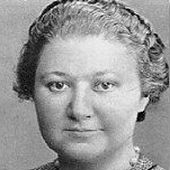
|
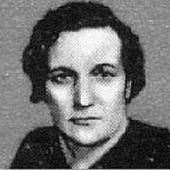
|
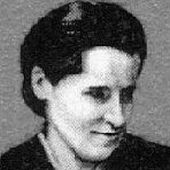
|
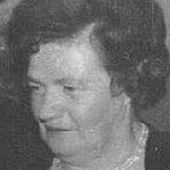
|

|

|
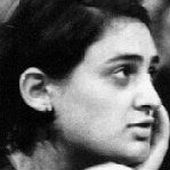
|
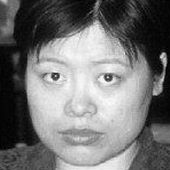
|

|

|
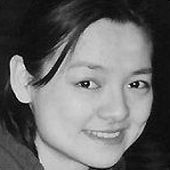
|

|
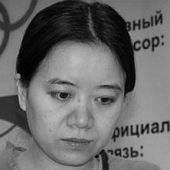
|

|

|

|

|

|

|
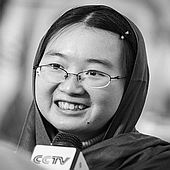
|
Below some other links to female champions:
And, now for something completely different (and indeed: if you take a look at Female chessplayers, why not at Jewish and Black chessplayers?):
^top Jan Hein Donner
|
I admire the late Jan Hein Donner (1927-1988) more for his writings than for his chess, although he won the Dutch championship three times (in 1954, 1957 and 1958) and had some international success (in Beverwijk 1963 first, ahead of Bronstein, and in Venice 1967 first, ahead of Petrosian). On August 24, 1983 Donner suffered a brain hemorrhage that ended his playing career at age 56 ("Just in time, because at age 56 your chess is not as good as at age 26" he sardonically put it). He died at 61, on November 27, 1988. His friends Tim Krabbe and Max Pam compiled his best writings into one volume: "The King: chess pieces". That's a book I can recommend to anyone, and I'm not the only one who thinks so: |
- Jeremy Silman starts his review of "The King" as follows: "I have long complained about the lack of good writing in chess circles. In fact, most of the chess rubbish that passes for prose reminds me of a Republican lecture on family values: rambling, boring, obvious, shallow and always (watch out! This is the part that really offends me!) politically correct. Then a light appeared at the end of the tunnel: a raving Dutch lunatic named Donner had written for years about chess, its big names, its political machinations, the psychology of winning and losing, and so much more."
- And this is what the publisher says: "This is the most outrageous chess book that money can buy! Dutch readers have followed the writing of the legendary, late J.H. Donner for decades. Witty, opinionated, sometimes cranky, he was never boring - always fun to read. Here is a collection of his best essays translated into English. We call it the Chess Book of the Century. Limited printing."
Some Donner quotes:
- "The New Testament is the only detective who patently obviously points out the reader as the guilty."
- "After I resigned this game with perfect self-control and solemnly shook hands with my opponent in the best of Anglo-Saxon traditions, I rushed home, where I threw myself onto my bed, howling and screaming, and pulled the blankets over my face. For three days and three nights the Erinnyes were after me. Then I got up, dressed, kissed my wife and considered my situation."
- "Love is: trying your whole life to teach your wife to play chess."
- "However painful it may be, we must not shrink from the truth: women cannot play chess."
- "An odor of sanctity began spreading through the tournament hall and outside too, as far as the blast furnaces spewing smoke in the distance. A few Reformed brethren, correctly assuming that the *MYSTERIUM TREMENDUM* was present in me then and there, gathered around me and asked me if this overwhelming token of Grace was not a Sign for me to return to the service of the Lord of Hosts. He, of Whom we can only speak obliquely, is my Friend, the Helper, by Whom I leap over a wall." (on salvaging a win from a lost position)
- "A real chess game can only be experienced by two people."
- "Our game is just too difficult for ordinary intelligent people."
- "The chess player who has lost his game - who will describe him? I have seen him unable to move. The public was long gone, the lights were out, and still he sat rigidly in his chair staring at the emptied board, because he had overlooked Bg2. A case of complete petrification, with bystanders whispering and tiptoeing by. I have heard him begging for punishment in blasphemous language. He had forgotten Nh5, and in his dismay he called down annihilation upon himself. Derisively, he rejected our words of solace, demanding insults and chastisements. Standing afar and horror-stricken, I have witnessed him swearing in orgiastic fury to rip off his genitals, because he had played Qf6 instead of Qb6."
- "He plays a hideously crooked kind of chess. If correct play and judgment were what counted, he would never win a game. He hasn't got a clue. He is the worst player in the whole wide world." (on Lodewijk Prins)
- "Prins was in his element. Utter nonsense proved a complete success. It is a sad thing that a player of his level must rate officially as the strongest in Holland." (on Lodewijk Prins winning the Dutch chess championship)
- "When I can't bang their heads together anymore, it is time for me to go."
- "My case happens to be less harrowing than it would have been if I had been totally dependent on the Dutch chess world, but not everyone gets the chance to marry a rich woman." (quite sarcastic, since his wife was by no means rich)
- "Men want to beat you up, but women want to take care of you. Personally I prefer a beating, because there's an end of it."
- "What's this? Are you teaching the poor boy to play chess? Fie, for shame! Why not have him drink hard liquor or take him off to a brothel, while you're at it!" (on teaching a child to play chess)
- "There is a conviction, deeply rooted in the Netherlands, that no Dutchman can ever achieve anything worthwhile. Euwe was so upset when he became world champion that he got rid of the title as soon as possible."
- "Kind, full of promises and guarantees before the contest but a blank amnesia afterwards. That's the way these gentlemen are." (on Dutch tournament organizers)
- "He probably has not overlooked me at all. No, he has omitted me on purpose. What is more, I have the distinct impression that he has only given his views in order not to mention me! How dare he, the little brat!" (on being omitted from Fischer's list of the 10 greatest chess players of all time)
- "I love all positions. Give me a difficult positional game, I will play it. Give me a bad position, I will defend it. Openings, endgames, complicated positions, dull draws, I love them and I will do my very best. But totally won positions, I cannot stand them."
- "He has contributed a few notorious drawing variations to chess theory and obviously holds to the firm belief that winning or losing is an abnormal end to a chess game." (on Trifunovic)
- "The torrent of rudeness, girlish sulking ('I'm not speaking with you any longer') and downright insults I have to put up with from youngsters who are as yet incapable of surpassing me on the chess board may have its psychological explanation, I still find the intensity of their aggression frightening at times. When Bohm avails himself of the publicity surrounding his excellent result in the recent IBM tournament to air his doubts about my sexual prowess and to brand me a malicious gossip, and then triumphantly declares that he has taken his 'revenge,' I don't quite see why, though I suspect it concerns problems that he'll have to thrash out for himself."
- "How could a Western Grandmaster lose to a Chinaman?" (after this loss: Liu Wenzhe (2200) - Donner,J (2490), Buenos Aires, 1978: 1.e4 d6 2.d4 Nf6 3.Nc3 g6 4.Be2 Bg7 5.g4 h6 6.h3 c5 7.d5 0-0 8.h4 e6 9.g5 hxg5 10.hxg5 Ne8 11.Qd3 exd5 12.Nxd5 Nc6 13.Qg3 Be6 14.Qh4 f5 15.Qh7+ Kf7 16.Qxg6+ Kxg6 17.Bh5+ Kh7 18.Bf7+ Bh6 19.g6+ Kg7 20.Bxh6+ 1-0). See this link (in Dutch!) as well!
- "Even in the world of chess there is at least one woman who rates as a world-class player. For inveterate masculinists and for those who must write jocular pieces to earn a living, this is a serious setback, which will naturally not prevent us in the least from continuing our struggle unabatedly." (speaking of Nona Gaprindashvili)
- "Women can do everything but they cannot think logically. They have no intuition."
- "Great writers must be dead. Their being alive is no good to us. On the contrary, because they are alive, there is something unfinished about their work. ... they may change their minds or give further explanations, spoiling their work."
Some Donner links:
- One: Tim Krabbe writes about the first time Donner met Euwe in his Open Chess Diary (no 116).
- Two: Tim Krabbe writes again about Donner and Euwe, but in Dutch this time.
- Three: Tim Krabbe writes about Donner wanting to "bang their heads together" (see the Donner quotes) in his Open Chess Diary (no 99).
- Four: Helmut Pfleger writes about Donner insults and surprises (in German).
- Five: Once again Krabbe on Donner (in Dutch).
- Six: Donner in the Biografical Dictionary (in Dutch).
- Seven: Donnerbase (download all the games Donner played!). On the site are also some statistics (in Dutch).
Some data and facts:
|
Johannes Hendrikus (Jan Hein) Donner was born on July 6, 1927 in The Hague (by the way: Adolph Anderssen was born on July 6 too!). He learnt to play chess on August 22, 1941. This exact date was remembered because it was the same day his father was imprisoned by the Germans (remember it was World War 2). He had a special talent for chess, since one year later he played Euwe (see Krabbe's Open Chess Diary (no 116) where Krabbe writes about the first time Donner met Euwe). In 1944 he joined DD (Discendo Discimus). He was a member of this famous Dutch chess club all his life. In 1945 he started his law studies at the University of Amsterdam, but spent most of his time there studying and playing chess. He got international fame in the Hoogovens tournament in 1950. He took first place before Euwe and Rossolimo. In 1952 he became an IM and in 1959 an IGM. In 1954 he wins the Dutch Championship and ends thus the 33 year (!) reign of Euwe. |
|
|
|
When asked to mention his best game, he said: "... very little remains of the hundreds of games I played. Maybe one. A short one, but one that shows some of the perfection I always sought for, but almost never found ..." The game he refers to is: Donner-Troianescu, 1957 that went as follows: 1. d4 Nf6 2. c4 e6 3. Nc3 Bb4 4. e3 c5 5. Bd3 O-O 6. Nf3 d5 7. O-O Nc6 8. a3 cxd4 9. exd4 dxc4 10. Bxc4 Be7 11. Re1 a6 12. Ba2 b5 13. d5 exd5 14. Nxd5 Nxd5 15. Qxd5 Bb7 16. Qh5 g6 17. Qh6 Nd4 18. Ng5 Bxg5 19. Bxg5 Qb6 20. Rad1 Rac8 21. Re7 Qd6 22. Kh1 Qc6 23. Rxb7 Nf5 24. Bd5 Qc2 25. Rc1 Qe2 26. Bxf7+ Kh8 1-0. |
Jan Hein Donner was famous for his "live" game commentary during the IBM and Hoogovens tournaments. In the drawing by Rupert van der Linden (above) he comments on a game Timman-Lobron (1983).
^top My masterpieces (to be continued...)
Here you find the links to some of my chessgames which I consider to be my masterpieces... So far there are only two, but one of these days...
^top The statistics
The 'hit' statistics are done, since the end of July 1999, by NedStat (click the following icon to see them):

